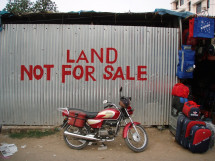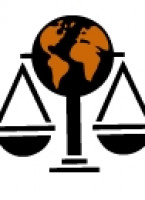Towards a Broader View of the Politics of Global Land Grabbing Rethinking Land Issues, Reframing Resistance
Publication date:
The spectre of a global land grab by foreign transnationals has captured media attention, but perhaps the bigger danger lies in the response by institutions like the World Bank, whose supposedly ameliorative measures are likely to entrench dispossession rather than prevent it.

Authors
Abstract
The phrase ‘global land grab’ has become a catch-all framework to describe and analyze the current explosion of (trans)national commercial land transactions related to the production and sale of food and biofuels. Initially deployed and popularised by activist groups opposed to such transactions from an environmental and agrarian justice perspectives, the significance of the phrase has quickly moved beyond its original moorings, as it gets absorbed into mainstream development currents that push for ‘win-win’ arrangements and a ‘code of conduct’, which is critically examined in this paper.
The remainder of our discussion concerns the political dynamics of changes in and struggles over land use and land property relations in the context of contemporary (trans)national land deals that target, principally though not solely, ‘non-private’ lands. We argue that the political dynamics around land are further exposing the inappropriateness of the aggressively promoted mainstream ‘toolkit’ of ‘land governance’. And while we agree with much of the radical critique of the global land rush that it is likely to lead to massive enclosure and dispossession, we also raise the need for nuanced analysis (e.g. more class analysis) and careful empirical inquiry (e.g. less speculation).
We then consider the possibilities of an alternative perspective, which for lack of a better term, we call here ‘land sovereignty’, as a potentially more inclusive and relevant conceptual, political and methodological framework.


